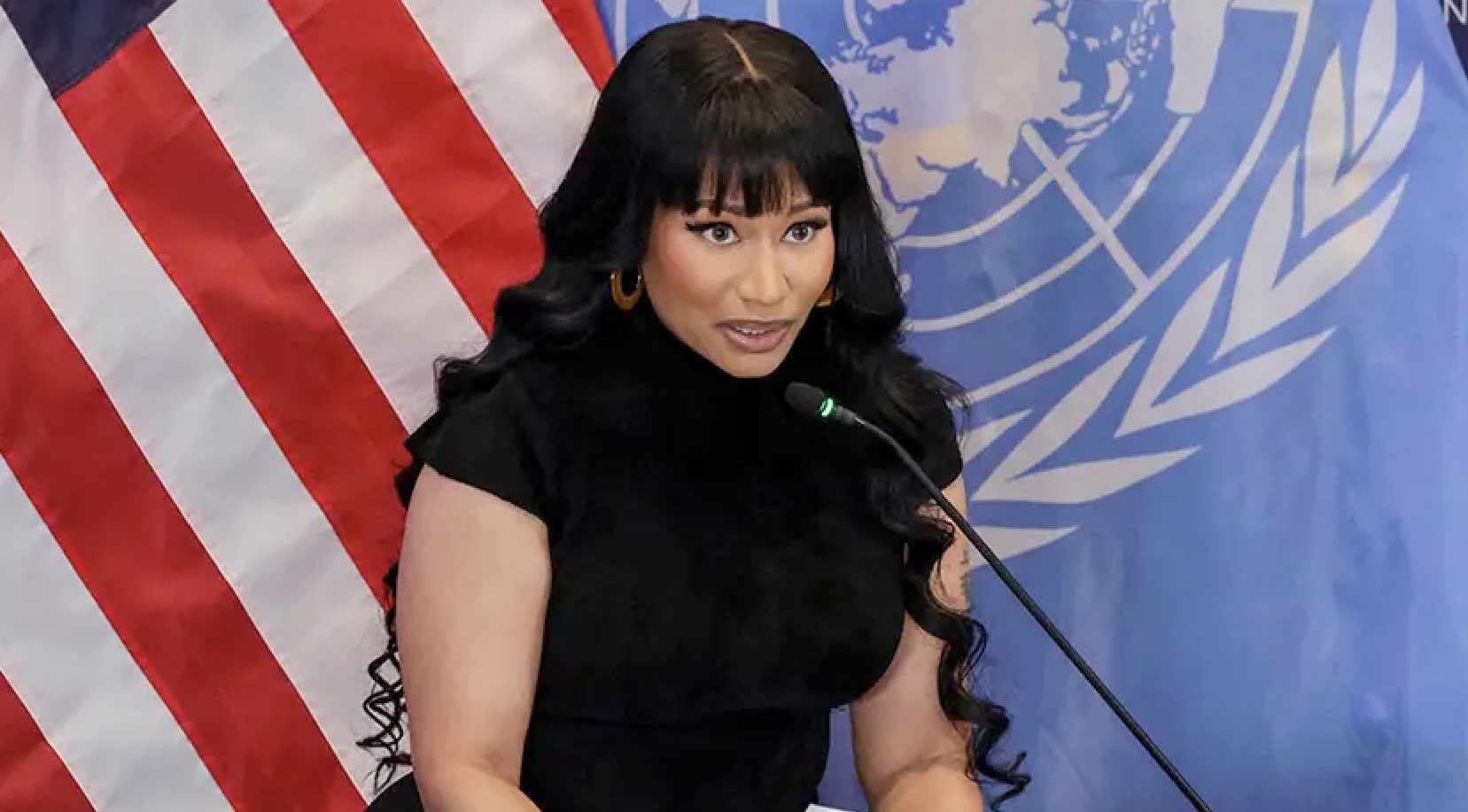Mission
Minaj’s remarks came amid heightened political tension surrounding the issue. Photo: ANGELA WEISS/AFP vía Getty Images
Introducing her at the event, U.S. Ambassador Mike Waltz framed Minaj not as a celebrity guest but as a witness—someone, he said, whose large following may help illuminate a crisis often overlooked by those far from the affected regions
(ZENIT News / New York, 11.20.2025).- The appearance of rapper Nicki Minaj at the United Nations this week added an unexpected voice to the long-running debate over religious violence in Nigeria, bringing pop-culture visibility to an issue typically confined to diplomatic reports and human-rights briefings. Speaking at the U.S. Mission to the UN on 18 November, the Trinidad-born artist used her short address to press global leaders to confront what she called a mounting pattern of violence against Christian communities in Africa’s most populous nation.
Minaj’s remarks came amid heightened political tension surrounding the issue. President Donald Trump has recently claimed that Nigerian Christians face an “existential threat” at the hands of extremist groups and has urged the Pentagon to prepare for potential military action should Abuja fail to curb violence. His comments set off days of debate in Washington, drawing sharp criticism from Nigerian President Bola Ahmed Tinubu, who insisted that the country’s religious minorities are not abandoned and that constitutional protections remain intact.
Against that backdrop, the rapper—more accustomed to stadium stages than diplomatic chambers—stepped forward to express gratitude to Trump for focusing international attention on the situation. Her remarks underscored a theme echoed throughout the event: that respect for religious freedom need not depend on shared beliefs.
She described her own experience of performing before audiences of many religions, languages, and cultures, observing that the emotional response to music often transcends those lines. That universality, she argued, should inform the global reaction to communities living in fear. The right to worship freely, she said, belongs to all people, and violations of that freedom anywhere deserve a collective response.
Human-rights monitors have for years documented episodes of targeted attacks in Nigeria’s Middle Belt and northern regions, though analysts continue to debate the extent to which Christians are singled out. While some researchers argue that violence there stems from complex ethnic, economic, and territorial disputes, several organizations maintain that religiously motivated assaults have increased in scale and frequency. A report released this summer by the International Society for Civil Liberties and Rule of Law estimated that tens of thousands of Christians have been killed since 2009, figures that Nigerian authorities dispute.
The U.S. State Department added Nigeria to its list of “countries of particular concern” on 31 October, citing sustained violations of religious liberty. Trump, responding on his social platform, accused militant groups of carrying out a “campaign of extermination” and warned that American aid could be reevaluated. Tinubu dismissed those characterizations the following day, arguing that Nigeria’s multi-faith identity remains resilient despite the challenges posed by extremist violence.
Minaj’s own engagement intensified earlier this month when she responded publicly to Trump’s claims, writing that she felt “deep gratitude” for renewed attention to the plight of persecuted communities. Her appearance at the UN followed that exchange and included a commitment to speak out on behalf of any group facing injustice for its religious convictions.
Introducing her at the event, U.S. Ambassador Mike Waltz framed Minaj not as a celebrity guest but as a witness—someone, he said, whose large following may help illuminate a crisis often overlooked by those far from the affected regions. He joined other faith leaders in urging governments to listen to victims’ accounts and to recognize that the instability fueling violence reaches beyond religious boundaries.
Her appeal coincided with remarks posted on 10 October by Pope Leo XIV, who noted that Christians in Nigeria, Bangladesh, Mozambique, Sudan, and other countries continue to suffer discrimination and outright persecution. The pope called for a renewed global commitment to safeguarding minorities wherever they are threatened.
Throughout her address, Minaj avoided partisan rhetoric, insisting that advocacy on behalf of Nigerian Christians should not be misread as choosing a political side. She portrayed the issue as a test of shared humanity, describing Nigeria as a country of “deep religious traditions” that she hopes to visit one day.
She ended with a reflection on music, the domain where she feels most at home. Concert halls around the world, she suggested, have shown her how people come alive when something reaches their spirit. In her view, religious freedom is akin to that experience: the possibility of expressing what one believes, without fear, wherever one lives.
Thank you for reading our content. If you would like to receive ZENIT’s daily e-mail news, you can subscribe for free through this link.
View all articles
If you liked this article, support ZENIT now with a donation
To be celebrated from September 25-27, 2026 in Rome
The encounter lasted only a short while, yet it left a distinct impression—an intimate gesture at a time when the Church is preparing for one of its most significant milestones of the decade: the 800th anniversary of the death of the Poverello of Assisi, to be commemorated in 2026.
